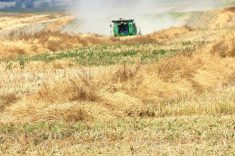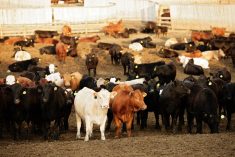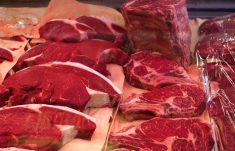Tokyo | Reuters — As trade officials gather in Tokyo this week to try and forge ahead with a trade pact that U.S. President Donald Trump abandoned last year, the new 11-member club risks getting bogged down by resistance from Canada.
The member countries of the Comprehensive and Progressive Agreement for Trans-Pacific Partnership (CPTPP), also known as TPP 11, reached a basic agreement on the pact in November.
But Canada is holding out to secure protection of its cultural industries, like movies, TV, and music, and has said it will not be rushed into signing a deal that other members hope to conclude by March.
Read Also

U.S. grains: CBOT soybeans, corn, wheat fall in USDA data aftermath
Chicago grains took a dive on Friday, following a closely watched U.S. government crop report and the release of export data that could provide clues into Chinese buying.
That is casting a shadow over a meeting of trade officials from member countries this week in Tokyo and is raising questions about the economic benefits of a pact that doesn’t bring Canada into the fold.
“The overall economic impact of the CPTPP would be significantly further eroded if Canada, which is a Group of Seven nation, decides to postpone its decision about joining,” said Rajiv Biswas, Asia-Pacific chief economist at IHS Markit.
After Trump pulled the U.S. out of the Trans-Pacific Partnership agreement last year, Japan took a leading role in pushing for a replacement pact.
Along with Australia and Mexico, Tokyo has lobbied hard for the agreement, which aims to eliminate trading barriers and tariffs on industrial and farm products across the 11-nation bloc whose trade totalled US$356 billion in 2016.
“Our strong preference is for all 11 countries to join the first wave, but our focus is on bringing a new TPP agreement into force as soon as possible with those who are ready to move,” Australian Prime Minister Malcolm Turnbull said in Tokyo last week.
The talks in Tokyo starting Monday are expected to iron out technical differences on rules for the treatment of labour and intellectual property but unlikely to yield a conclusive statement that member countries will quickly sign the pact.
Canada, which would be the second-biggest economy in the bloc after Japan, is also unhappy over the rules of origin for cars.
“Like Vietnam, one of the crucial elements we secured was what is known as a work plan, a mechanism to deal with outstanding issues, which for Canada includes ensuring the deal provides better access and terms for autos and does not affect our unique cultural sensitivities,” Joseph Pickerill, spokesman for Canadian Trade Minister Francois-Philippe Champagne, said in a statement.
Vietnam has emerged as another swing country because of its resistance to rules that would improve rights for its workforce, although Hanoi hasn’t shown resistance to sign the pact.
“Canada has taken a step back to say they cannot sign TPP 11 right away, but there are expectations that if the remaining 10 countries move ahead Canada will eventually come back,” said Junichi Sugawara, senior research officer at Mizuho Research Institute.
‘Watch helplessly’
Canadian organizations representing export-dependent farm sectors last week urged Canada to commit to the CPTPP — among them the Canadian Cattlemen’s Association, which in a statement Wednesday warned “there can be no status quo for Canadian beef.
“Either Canada joins the CPTPP and Canadian beef will join the club of preferential suppliers to Japan or Canada remains outside the CPTPP and Canadian beef producers will watch helplessly as our exports to Japan erode.”
Describing the CPTPP as “vital” to the pork industry, the Canadian Pork Council on Thursday warned that if Canada takes a pass on the pact, its share of Japan’s pork market would “rapidly be acquired by other countries, including members of the European Union, which recently concluded (trade) negotiations with Japan.”
“Without the CPTPP it will be South Korea all over again — watching sales evaporate because we hesitated and didn’t implement a trade agreement,” Brian Innes, president of the Canadian Agri-Food Trade Alliance, said in a separate release Friday.
— Reporting for Reuters by Stanley White and Kaori Kaneko; additional reporting by David Ljunggren in Ottawa. Includes files from AGCanada.com Network staff.














